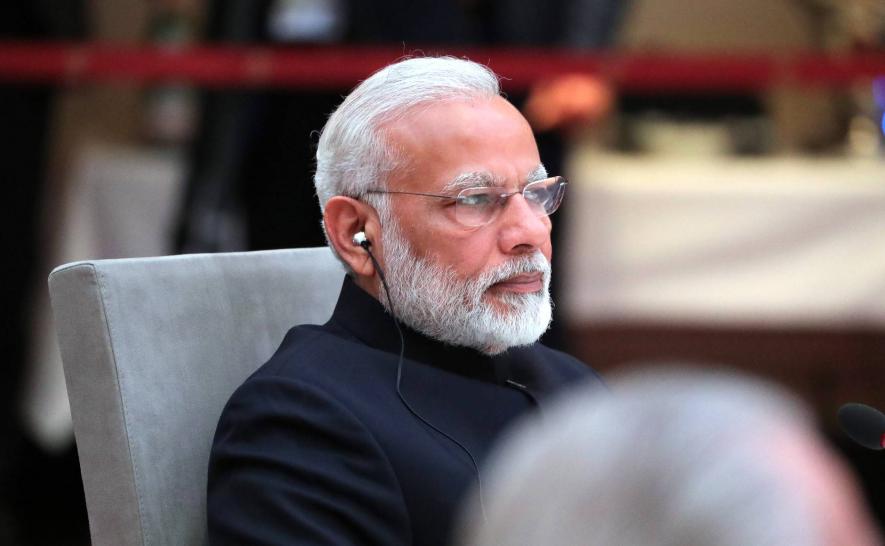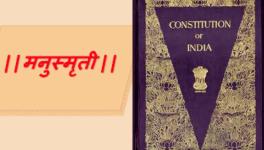How to Defend India and Swaraj

The culture of dissent and protest, a by-product of our freedom struggle and integral to the constitutional vision of India, has always faced multiple challenges from successive political regimes. During the freedom struggle, the colonial rulers employed the sedition provision of the Indian Penal Code and other harsh punitive laws against those who criticised the government. Mahatma Gandhi wrote in the article “Birth Anniversary of Dadabhai Naoroji” in Navjivan on 7 September 1924, “At a time when criticism of the government was considered sedition and hardly anyone dared to speak the truth, Dadabhai criticised the government in the severest terms and boldly pointed out the shortcomings of the administration.”
Since independence, political regimes, be they of the Congress, BJP, or any other political formation, have used sedition to silence dissent. An Article14.com database found a 28% increase in the registration of sedition cases, especially against dissenters and critics, between 2014 and 2020. The Indian Express recently investigated how the Central Bureau of Investigation (CBI) and Enforcement Directorate have been used against politicians for eighteen years during Congress and BJP-ruled periods. It revealed a four-fold increase in Enforcement Directorate cases against politicians. 115 of the 125 politicians probed by the Enforcement Directorate since 2014 are opposition leaders. This sharp increase occurred after Prime Minister Narendra Modi assumed office. In glaring contrast, during the UPA regime from 2004 to 2014, 26 political leaders were subjected to ED probes—14, constituting 54%, were from opposition parties.
This indicates criticism of the government now invites punitive measures against a staggeringly higher number of opposition leaders. They have complained that the present government wants to intimidate them and stifle criticism. In this way, the culture of dissent—essential to hold governments to account—is being negated with a vengeance.
Numerous instances of slapping sedition charges and other draconian laws against those who dissent and question the government played a crucial role in making our democracy illiberal. We painfully recall the Emergency imposed by the Indira Gandhi regime in 1975. It lasted for nineteen months when people’s rights were suspended. Unfortunately, the political regime in India has now taken measures to target critics of the government. It has created conditions that suppress people’s civil liberties and curb the freedom of expression, which Gandhi described in 1940 as the foundation of Swaraj.
Freedom fighters invoked the idea of Swaraj during the freedom struggle. The same idea has now assumed greater significance in defending the rights of people facing recurrent assaults on our democracy because of the policies of the present political regime.
The description of India as an elected autocracy and a partially free country by international think tanks demonstrates the extent to which people’s fundamental freedom to interrogate political regimes has been compromised with impunity. When people in large numbers protested in Uttar Pradesh against the Citizenship Amendment Act, Chief Minister Yogi Adityanath said his government “will take revenge”. Such statements by those who took an oath on the Constitution betray ruthlessness toward protest and dissent.
Mahatma Gandhi looked at Swaraj from the perspective of citizens’ rights and capacity to question the government. Almost a century ago, in 1925, he said, “....real Swaraj will come not by the acquisition of authority by a few but by the acquisition of the capacity by all to resist authority when it is abused. In other words, Swaraj is to be obtained by empowering the masses to a sense of their capacity to regulate and control authority.”
His notion of Swaraj affirms a culture of dissent, and raising demands from the government isn’t very different from Dr BR Ambedkar’s electrifying 1941 slogan, “Educate, Agitate, Organise!” Any attempt to penalise the people’s movement and protest to regulate authority is an attempt to trample upon the vision of Swaraj nurtured during the freedom struggle. Lately, people engaged in movements against legislations enacted by dispensing with the consultative process of law-making have been ridiculed and unfairly called “andolonjeevis”. Such attempts scoff at the idea of Swaraj itself.
Tragically, people’s fundamental right to protest is being ridiculed when the country is celebrating the 75th year of our independence. While Prime Minister waxed eloquently on Nari Shakti, power of women, on Independence Day, the BJP government of Gujarat released 11 convicts sentenced to life imprisonment on charges of gang-raping Bilkis Bano and murdering 14 members of her family. They were set free by applying remission, disregarding the provision that the state should not release those held guilty by courts for committing heinous crimes of rape and murder. While dissent and protest are criminalised, the BJP government of Gujarat is releasing those who have committed horrific crimes. It is rather tragic that Prime Minister Modi is maintaining a deafening silence on the issue.
The grim developments in our country violate the idea of Swaraj, the core meaning of which was interpreted by Gandhi from multiple perspectives. One was women’s safety and security. On 14 August 1921, writing in Navjivan, he defined Swaraj: “Swaraj would mean Hindus, Muslims, Sikhs, Parsis, Christians, and Jews should all be able to follow their faith and respect those of others.” He asserted it is a condition in which “a young girl could, without danger, move about alone even in the dead of night”.
Writing on 20 October 1929 in Navjivan, Gandhi said Swaraj meant more than the transfer of power from British to Indian hands. “To my mind, Swaraj means regulated power in the hands of thirty crores of people. Where there is such a rule, even a young girl will feel herself safe,” he said.
The absence of a sense of safety and security for women in India means a danger to the idea of Swaraj. It is painful that the Modi regime ad nauseum talks about “Minimum Government and Maximum Governance”—is it “maximum governance” to release rape and murder convicts on Independence Day? Indians want Swaraj in its real sense. That was the vision of Gandhi, who felt Swaraj would be critical for nation-building. The regime that negates Swaraj now loudly talks about the duties of citizens! Fundamental rights are hardly discussed. Instead, people’s rights are violated in disregard for their entitlements. The complementarity of rights and duties is being lost sight of. The rechristening of Raj Path to Kartavya Path demonstrates the mindset of the ruling leadership to give disproportionate emphasis on duties over rights.
When people question the Centre, they are described as anti-national. They face harsh measures for their courage to interrogate the regime. The year-long farmers’ movement against the three farm laws enacted without a consultative lawmaking process forced the Centre to repeal them. Despite attempts by the Union government to crush that movement through intimidating measures, it generated hope that people could regulate political power and hold the government to account.
On the 75th anniversary of independence, we must invoke this capacity to regulate political authority as our idea of Swaraj. This method can salvage the idea of India and its Swaraj, which faces relentless attacks.
The author was Officer on Special Duty to President of India K R Narayanan. The views are personal
Get the latest reports & analysis with people's perspective on Protests, movements & deep analytical videos, discussions of the current affairs in your Telegram app. Subscribe to NewsClick's Telegram channel & get Real-Time updates on stories, as they get published on our website.
























